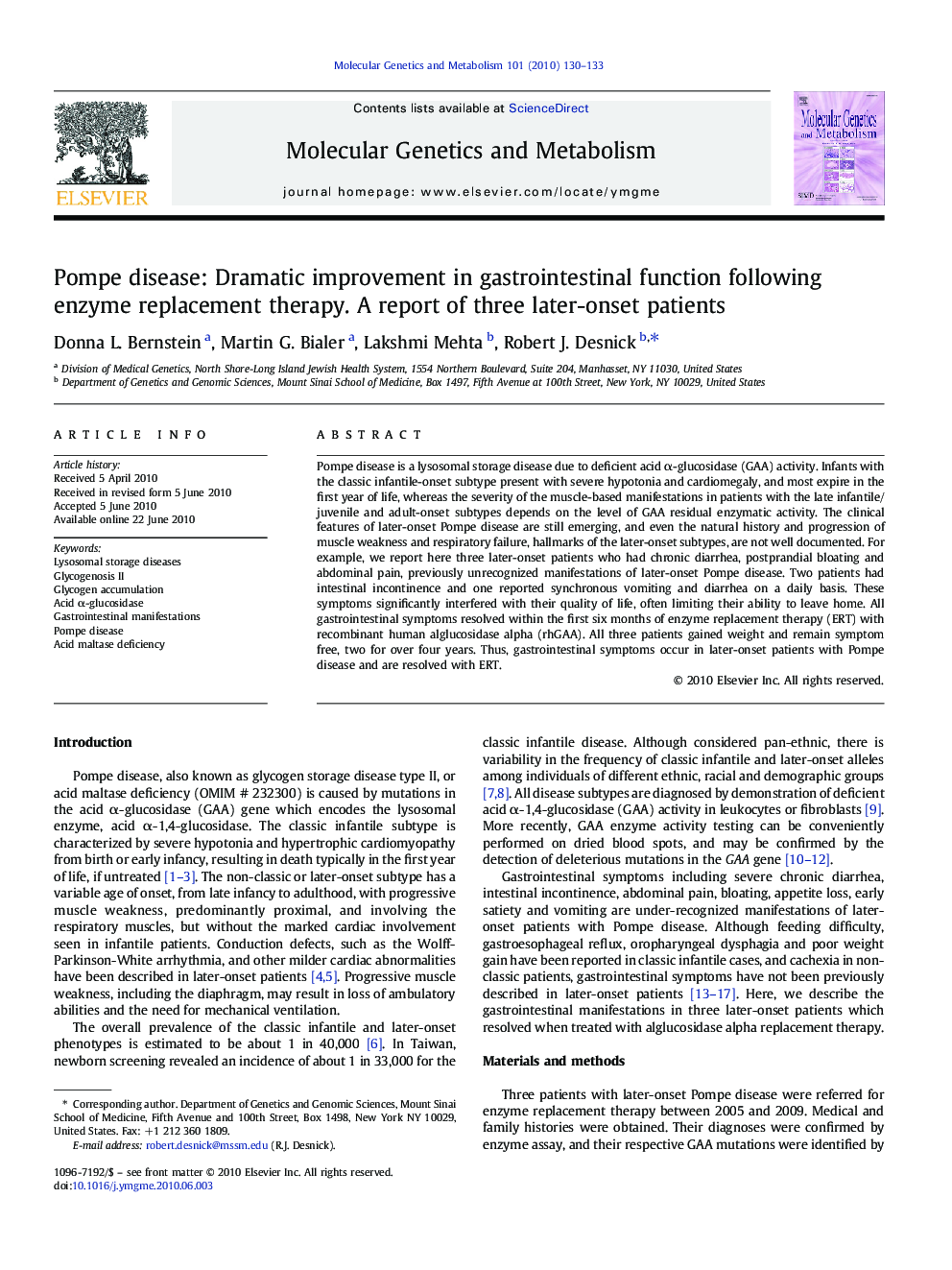| Article ID | Journal | Published Year | Pages | File Type |
|---|---|---|---|---|
| 8344272 | Molecular Genetics and Metabolism | 2010 | 4 Pages |
Abstract
Pompe disease is a lysosomal storage disease due to deficient acid α-glucosidase (GAA) activity. Infants with the classic infantile-onset subtype present with severe hypotonia and cardiomegaly, and most expire in the first year of life, whereas the severity of the muscle-based manifestations in patients with the late infantile/juvenile and adult-onset subtypes depends on the level of GAA residual enzymatic activity. The clinical features of later-onset Pompe disease are still emerging, and even the natural history and progression of muscle weakness and respiratory failure, hallmarks of the later-onset subtypes, are not well documented. For example, we report here three later-onset patients who had chronic diarrhea, postprandial bloating and abdominal pain, previously unrecognized manifestations of later-onset Pompe disease. Two patients had intestinal incontinence and one reported synchronous vomiting and diarrhea on a daily basis. These symptoms significantly interfered with their quality of life, often limiting their ability to leave home. All gastrointestinal symptoms resolved within the first six months of enzyme replacement therapy (ERT) with recombinant human alglucosidase alpha (rhGAA). All three patients gained weight and remain symptom free, two for over four years. Thus, gastrointestinal symptoms occur in later-onset patients with Pompe disease and are resolved with ERT.
Keywords
Related Topics
Life Sciences
Biochemistry, Genetics and Molecular Biology
Biochemistry
Authors
Donna L. Bernstein, Martin G. Bialer, Lakshmi Mehta, Robert J. Desnick,
